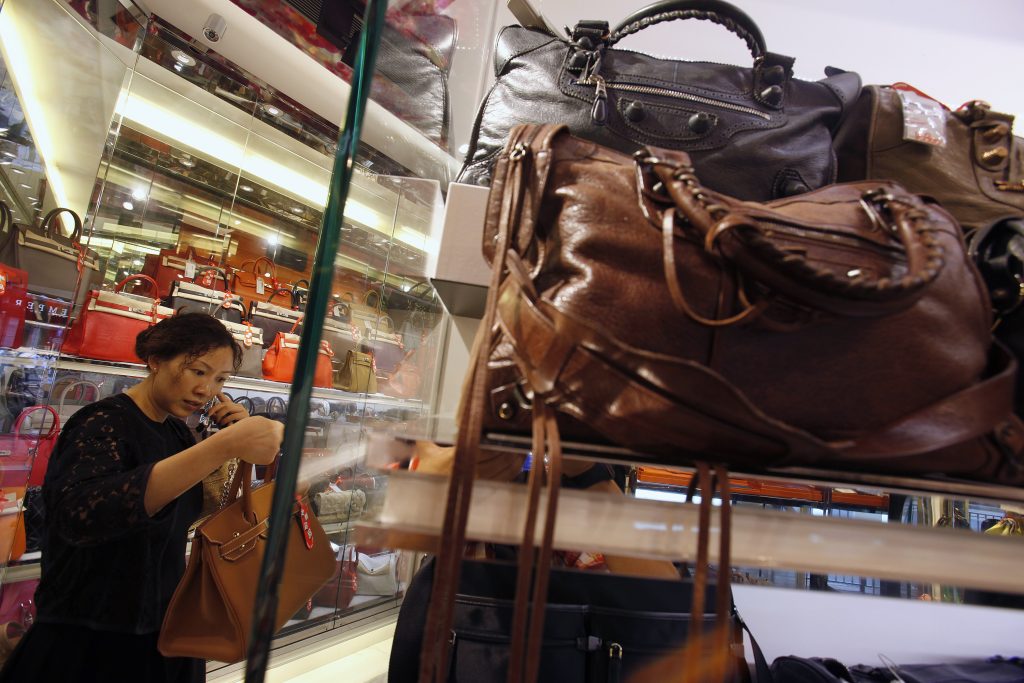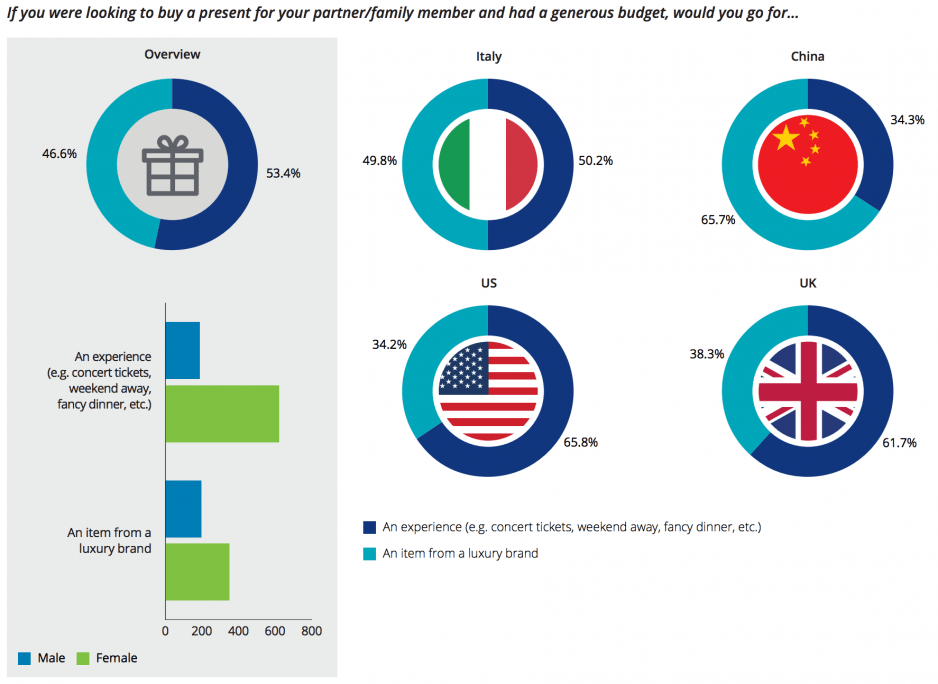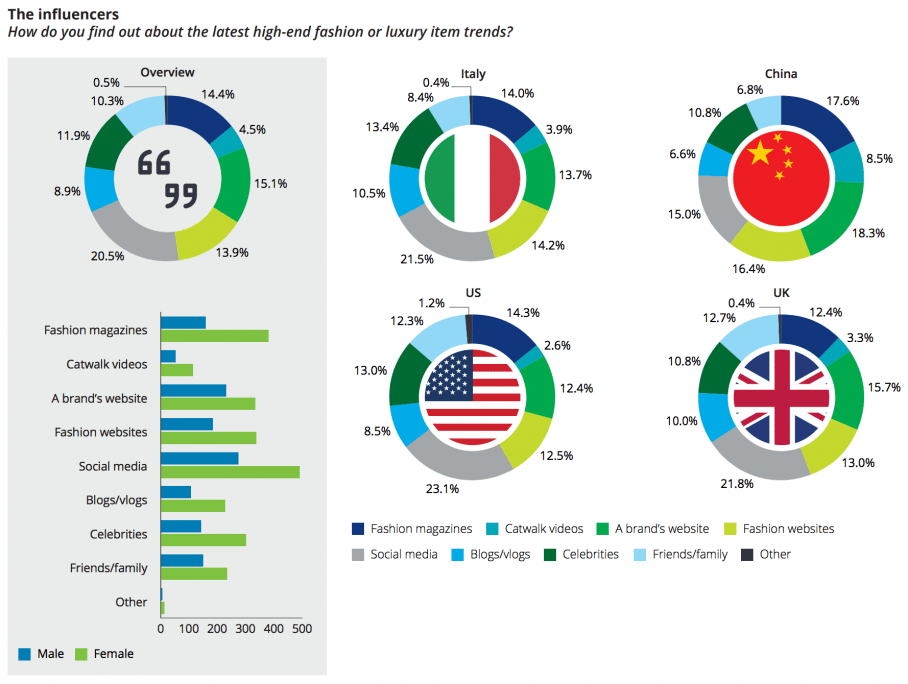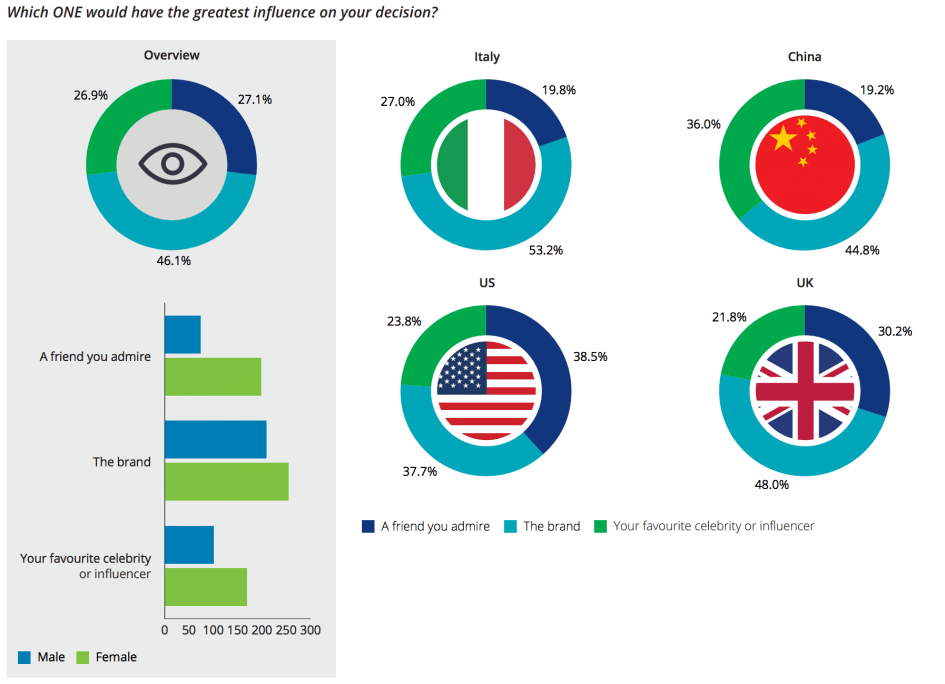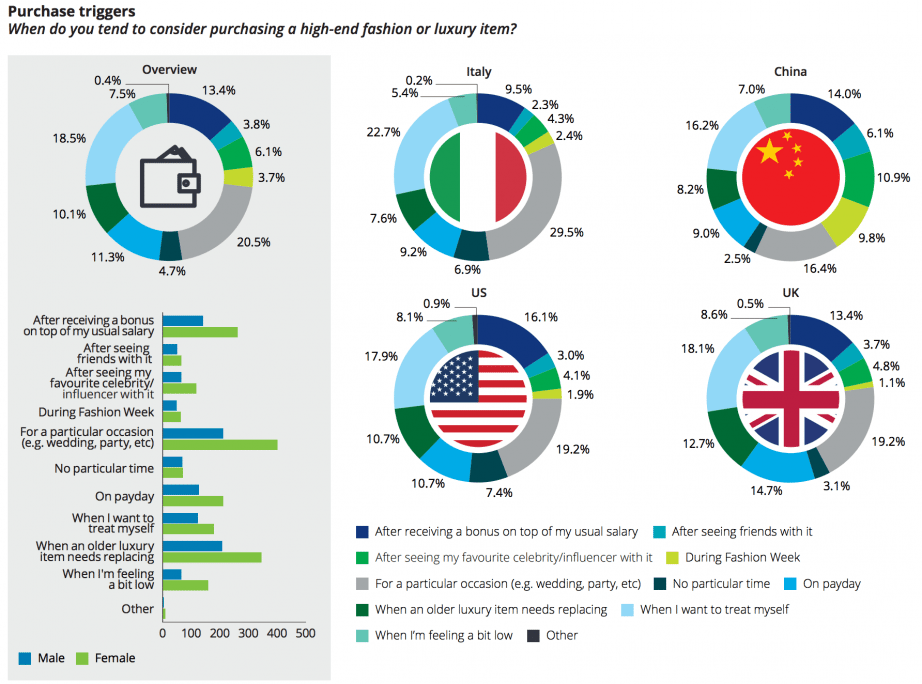Skift Take
There is no one strategy to win over millennials. Brands should focus on what they offer in terms of quality and then communicate that through as many channels as possible to increase their awareness among this diverse but growing demographic.
Most brands are chasing the coveted millennial buyer — especially luxury brands which hope to endear loyalty early and gain life-long customers in the process. Millennials, however, do not have a simple set of behaviors and habits change based on gender, age and location.
Deloitte dove into millennials’ luxury purchasing behavior in its new unfortunately named report Bling It On, which surveyed more than 1,000 consumers between 20 and 30 years old in the U.S., UK, Italy, and China. These markets represent the world’s largest consumer markets and producers of luxury goods. We highlight the five findings most relevant to travel brands:
1. Following a trend of experiential preference, millennials were slightly more likely, 53 percent, to choose a luxury experience over a product when buying a present on a generous budget.
Millennials in more mature markets such as the U.S. and UK were as much as 66 percent more likely to do so while only 34 percent of consumers in China make the same decision. Women in all markets were more likely to select the experience over product.
2. Although brands often think of millennials as conscious consumers, the report found that cost is not as influential when it comes to luxury purchases. A half or three-quarters of respondents from all markets said they rarely or only sometimes consider the sustainability and ethics of a brand before making a purchase decisions.
It is possible that consumers do not perceive their luxury purchasing decisions having the same impact on the environment or communities as everyday purchases since they occur more sporadically. Consumers from the U.S. and China were more likely to consider the sustainability of a brand than European consumers.
3. It is not surprising to find that more respondents discover new luxury products and trends through social media (20.5 percent) than a brand’s website (15.1 percent) or magazines (14.4 percent). And although social media is important, respondents say they make buying decisions based on information from multiple sources.
This might seem like a disaster for luxury brands: Millennial communicate through several mediums, have loose brand loyalties, and buy more for themselves than based on public opinion. Digital is the one constant.
As the report reads: “Reliance on ‘above-the-line’ advertising on the high street and in traditional print media, and the persuasive power of in-store beauty consultants, is giving way to a much more amorphous marketing environment which embraces online opinion sharing, and rating and influencing from a diverse group of product authorities who create a conversation between brands and potential customers through social multimedia, with Instagram now seen to be the most influential social channel for luxury brands.”
4. It might be surprising to some retailers that impressing friends or family and influencers were the among the least popular reasons for making a luxury purchase. Millennials were more likely to make a purchase because it made them feel good but also look good. Therefore, the perceived quality of a brand has a stronger impact than outsiders’ opinion.
5. Millennials are not consistent or regular buyers of luxury items or experiences. They are most likely to make a purchase when they receive extra income or have a special event. Brands must learn to trigger their customers into a buy rather than rely on a steady set of behavior.
This sporadic behavior is due in part to a lack of wealth. The U.S. Federal Reserve’s most recent Survey of Consumer Finances found that the average net worth of U.S. millennials 20 to 30 years old was between $2,093 and negative $38,915.
Most luxury brands, however, are not going after the average millennial. There is a segment of millennials, generally located in more urban areas who spend more on luxury products.
The Daily Newsletter
Our daily coverage of the global travel industry. Written by editors and analysts from across Skift’s brands.
Have a confidential tip for Skift? Get in touch
Tags: luxury, millennials
Photo credit: Luxury brands are chasing millennial buyers. A customer checks a luxury handbag at a Milan Station outlet in Hong Kong September 2, 2013. Bobby Yip / Reuters
